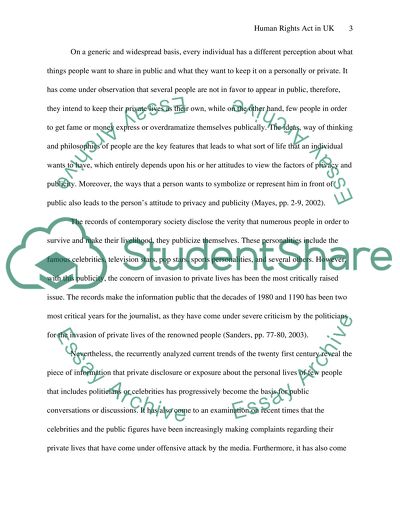Cite this document
(“Human Rights Act in UK Essay Example | Topics and Well Written Essays - 2500 words”, n.d.)
Human Rights Act in UK Essay Example | Topics and Well Written Essays - 2500 words. Retrieved from https://studentshare.org/journalism-communication/1433319-assess-the-impact-of-the-human-rights-act-upon
Human Rights Act in UK Essay Example | Topics and Well Written Essays - 2500 words. Retrieved from https://studentshare.org/journalism-communication/1433319-assess-the-impact-of-the-human-rights-act-upon
(Human Rights Act in UK Essay Example | Topics and Well Written Essays - 2500 Words)
Human Rights Act in UK Essay Example | Topics and Well Written Essays - 2500 Words. https://studentshare.org/journalism-communication/1433319-assess-the-impact-of-the-human-rights-act-upon.
Human Rights Act in UK Essay Example | Topics and Well Written Essays - 2500 Words. https://studentshare.org/journalism-communication/1433319-assess-the-impact-of-the-human-rights-act-upon.
“Human Rights Act in UK Essay Example | Topics and Well Written Essays - 2500 Words”, n.d. https://studentshare.org/journalism-communication/1433319-assess-the-impact-of-the-human-rights-act-upon.


